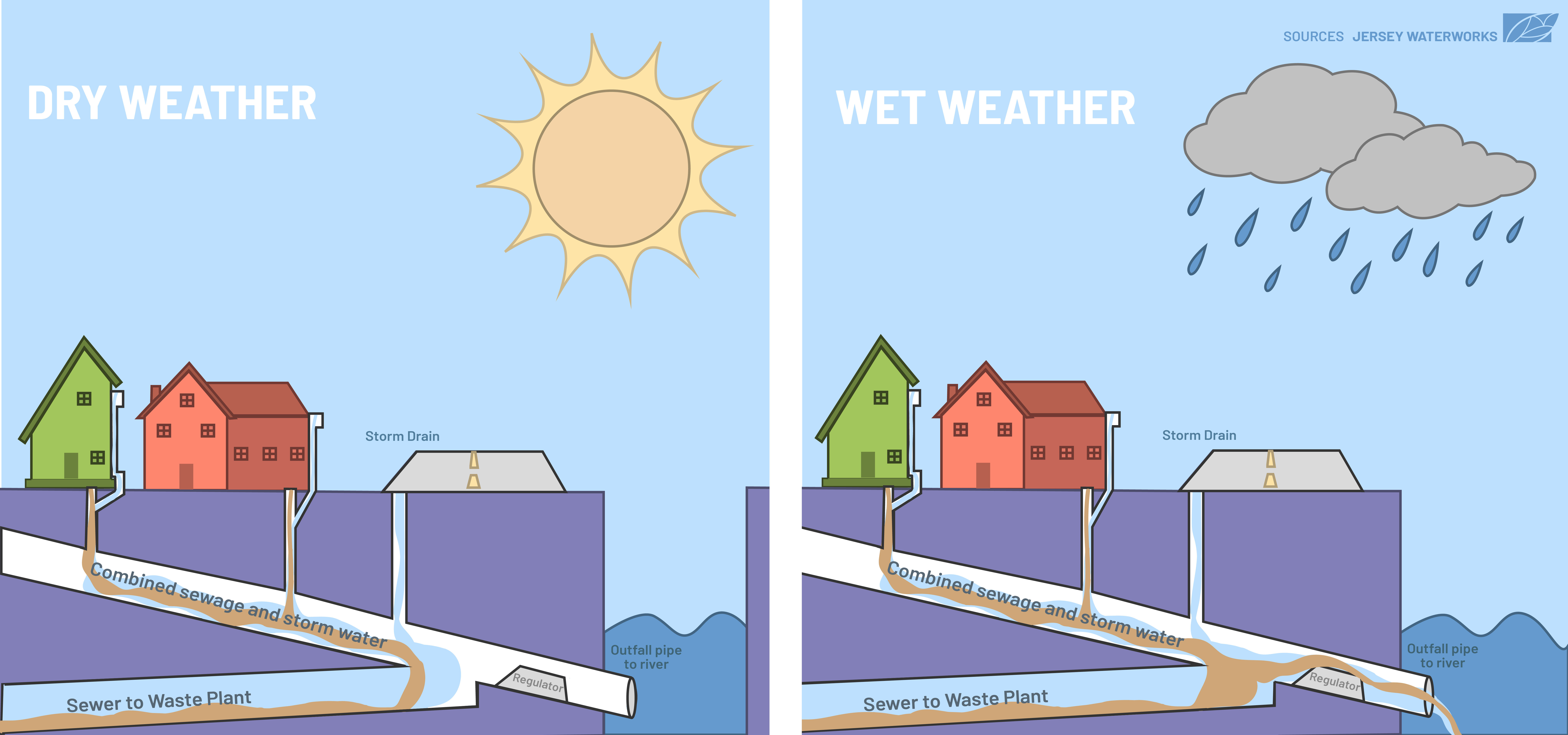A pair of northwestern Indiana towns have entered into agreements to resolve allegations they violated federal and state laws by allowing raw sewage to enter waterways.
The town of Highland’s sanitary district and the town of Griffith entered into separate consent decrees with the U.S. Environmental Protection Agency and the Indiana Department of Environmental Management. They agreed to pay civil penalties and make sewer system improvements in order to settle a lawsuit alleging they violated the Clean Water Act and Indiana state law by allowing untreated wastewater to enter local waterways for years.
Highland will pay $175,000 and Griffith will pay $33,000. The towns will also have to make $100 million in sewer system improvements over the next decade.
“Highland and Griffith are part of an area of northwest Indiana historically overburdened by pollution,” said Larry Starfield, acting assistant administrator for the EPA’s Office of Enforcement and Compliance. “These infrastructure improvements will prevent untreated sewage from entering the region’s waterbodies, thereby improving water quality as well as the quality of life for the people who live here.”

Both towns rely on the nearby Hammond Sanitary District to transport a specific amount of wastewater collected in the towns and treat it at Hammond’s wastewater treatment plant.
But over the last few decades, sanitary systems that would transport the wastewater in both towns have been unable to deal with chronic back-ups and flooding that followed heavy rainfall, despite tens of millions of dollars in system upgrades. The resulting overflows polluted an already troubled waterway, the Little Calumet River, and a tributary that feeds into the river, the Cady Marsh Ditch.
Sewer overflows deposit untreated water containing human waste and other potentially toxic materials into waterways. The raw sewage can contain bacteria, like E. coli, viruses, parasites and other harmful organisms that can cause life-threatening afflictions like cholera, dysentery, hepatitis and infections.
According to court records, the Highland Sanitary District discharged untreated sewage from several locations into the waterways more than 250 times since 2012.
The town in 2016 experienced 10 overflows that resulted in more than 730 thousand gallons of untreated water entering the Little Calumet River. By 2020, both the number of overflows and the amount of untreated water released during those overflows nearly tripled, with 29 overflows and 29 million gallons released into local waterways.
The town of Griffith experienced 16 overflows during the past decade, including a massive 14.9-million-gallon overflow lasting several days in late April 2019 and a 6.3-million-gallon overflow a month later. The town also experienced a 10.5-million-gallon overflow over two days in May 2020.
Both towns previously entered into consent decrees with the EPA and IDEM in the 1990s and early 2010s that ordered them to make the necessary changes to prevent sewer overflows.
Neither town was able to fully complete those changes, but the new agreement gives both towns time to meet the federally mandated requirements.
The Griffith town council said the current consent decree was a money-saving result of a decade of negotiation.
“What was requested of us, and what our engineers at the time had suggested, was we should build an approximately 15-million-gallon basin to hold extra water,” said Griffith town council president Rick Ryfa. “We didn’t think that was a real good idea.”
Ryfa said the basin would have cost between $20 and $30 million and could have been rejected as a remedy to the overflow problem by future administrations.
Instead, the town’s attorneys convinced the EPA and IDEM to modify the agreement to allow the city to fix the potential sources of inflow and infiltration into the town’s sewage collection system and increase pumping capacity by adding a wet weather pump station and a new force main by Oct. 1, 2026. The price of the modifications is estimated to be between $14 and $15 million.
“So, essentially, by negotiating for 10 years, we saved the town half the price,” Ryfa said.
The town of Highland will have to complete 4.5 miles of costly new sanitary gravity sewers in addition to a new lift station and force main. The town must complete the improvements by 2033.
“These consent decrees are an excellent example of how communities can work together to provide a cleaner, healthier environment for the citizens of northwest Indiana to use and enjoy, said IDEM commissioner Brian Rockensuess.
The improvements both towns must complete will bring them into federal and state compliance and improve the overall health of waterways near the communities, but at a cost.
Both towns will have to raise rates to pay for the sanitary system improvements and for increased flows sent to the Hammond system. Highland officials said an average household will pay about $14.25 more per month as a result of the increase. Griffith officials have not yet decided how much the sanitary rates would increase.
“The rate that was in place was not generating what it once did,” said Griffith clerk-treasurer Michael Griffin. “Local operating costs have increased, and there is wide agreement the town needs to put more money into the underground apparatus. Over time, the town will get a return on its investment, improving the bottom line.”
The towns could receive help from state to finance the projects. The Highland Sanitary District has requested $7.7 million in financial assistance from the Indiana Clean Water State Revolving Fund Loan Program to help finance the collection system improvements.
The federally-funded program provides low-interest loans and grants to communities needing to improve their wastewater and drinking water infrastructure.
The program recently received an $11.7 billion infusion of funding via the 2021 Infrastructure Investment and Jobs Act. Once Indiana receives its portion, the towns could receive some type of funding.
The U.S. Department of Justice will soon accept public comments on the consent decrees. Comments can be emailed to pubcomment-ees.enrd@
usdoj.gov. All comments should reference "United States of America and the State of Indiana v. the Sanitary District of Highland and the Town of Griffith, Indiana, D.J. Ref. Nos. 90–5–1–1–3308/ 4 and 90–5–1–1–3308/3."